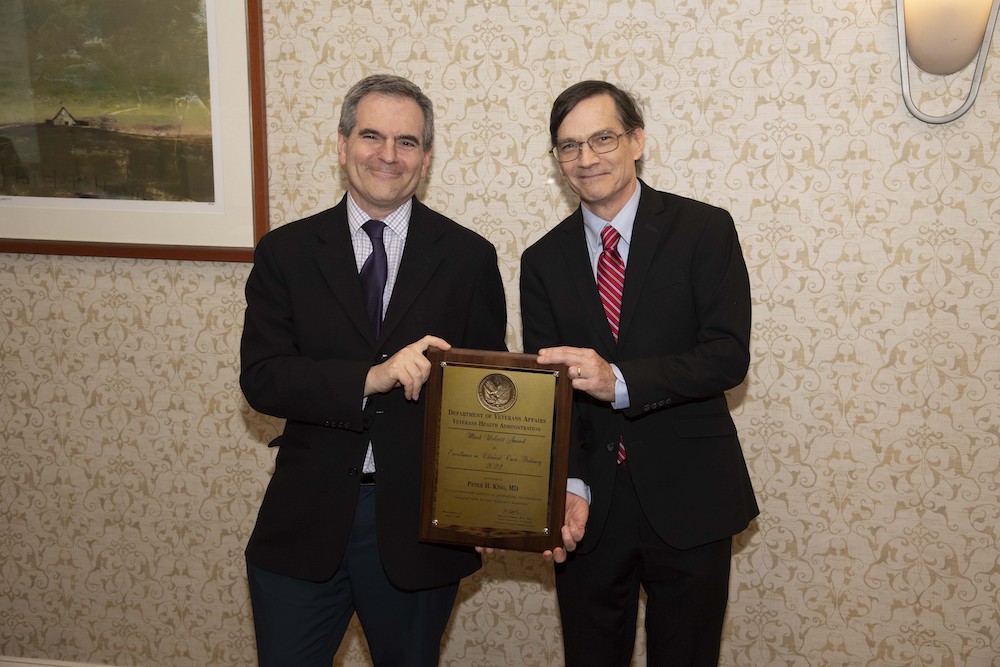 Peter King, M.D., professor in the Department of Neurology, Heersink School of Medicine at the University of Alabama at Birmingham, has received the Wolcott Award for Excellence in Clinical Care Delivery from the United States Department of Veteran’s Affairs. King is also the chief of the neurology section of the Birmingham VA Health Care System.
Peter King, M.D., professor in the Department of Neurology, Heersink School of Medicine at the University of Alabama at Birmingham, has received the Wolcott Award for Excellence in Clinical Care Delivery from the United States Department of Veteran’s Affairs. King is also the chief of the neurology section of the Birmingham VA Health Care System.
The prestigious award is given to a VA health care practitioner who has demonstrated excellence and dedication to the delivery of patient care as recognized by patients, colleagues, and leadership. It is the highest honor for healthcare providers within the VA. King was honored at a ceremony in Washington D.C. on May 10.
The Wolcott award citation lauded King for his leadership and “hands-on” approach to clinical care. As director of the Clinical Neurophysiology Division at BVAHCS which includes EMG, EEG, and video EEG monitoring. He has performed over 16,000 EMG studies for veterans in the southeast allowing for accurate neurological diagnosis of primary muscle disease, myasthenia gravis, peripheral neuropathy, radiculopathy, war-related nerve injuries, and other acquired neuropathies. In 2013, he started the first multi-disciplinary ALS clinic for veterans in Alabama and surrounding states and has continued to serve as director. This effort has facilitated the care of countless veterans in Alabama and surrounding states.
As clinical chief of Neurology since 2001, King has created a large comprehensive department with nationally sponsored programs including Centers of Excellence in epilepsy, multiple sclerosis, and headache. The Neurology Service provides subspecialty care to veterans in the Southeast. Many of these programs provide unique services that are not available in private or even academic hospitals. The service is highly productive and consistently ranks in the highest tier of productivity.
King is also the recipient of a Senior Clinician Scientist Investigator award for his research into RNA regulation of inflammatory mediators in glial cells. The SCSI award provides additional research funding.
King, in collaboration with Burt Nabors, M.D., has published findings showing their small molecule drug, SRI-42127, can potently attenuate the triggers of neuroinflammation in the central nervous system. This work has opened the door to testing SRI-42127 in models of acute and chronic neurological injury. A recent paper by their group shows that SRI-42127 blocks the development of pain after nerve injury.
Neuroinflammation can worsen outcomes in stroke, traumatic brain injury, or spinal cord injury, as well as accelerate neurodegenerative diseases like ALS, Parkinson’s, or Alzheimer’s. This suggests that limiting neuroinflammation may represent a promising new approach to treating neurological diseases and neuropathic pain that are driven by neuroinflammation.
King earned his medical degree from Duke University and did post-doctoral training at Duke and the Cleveland Clinic. He joined the faculty of UAB in 1992.